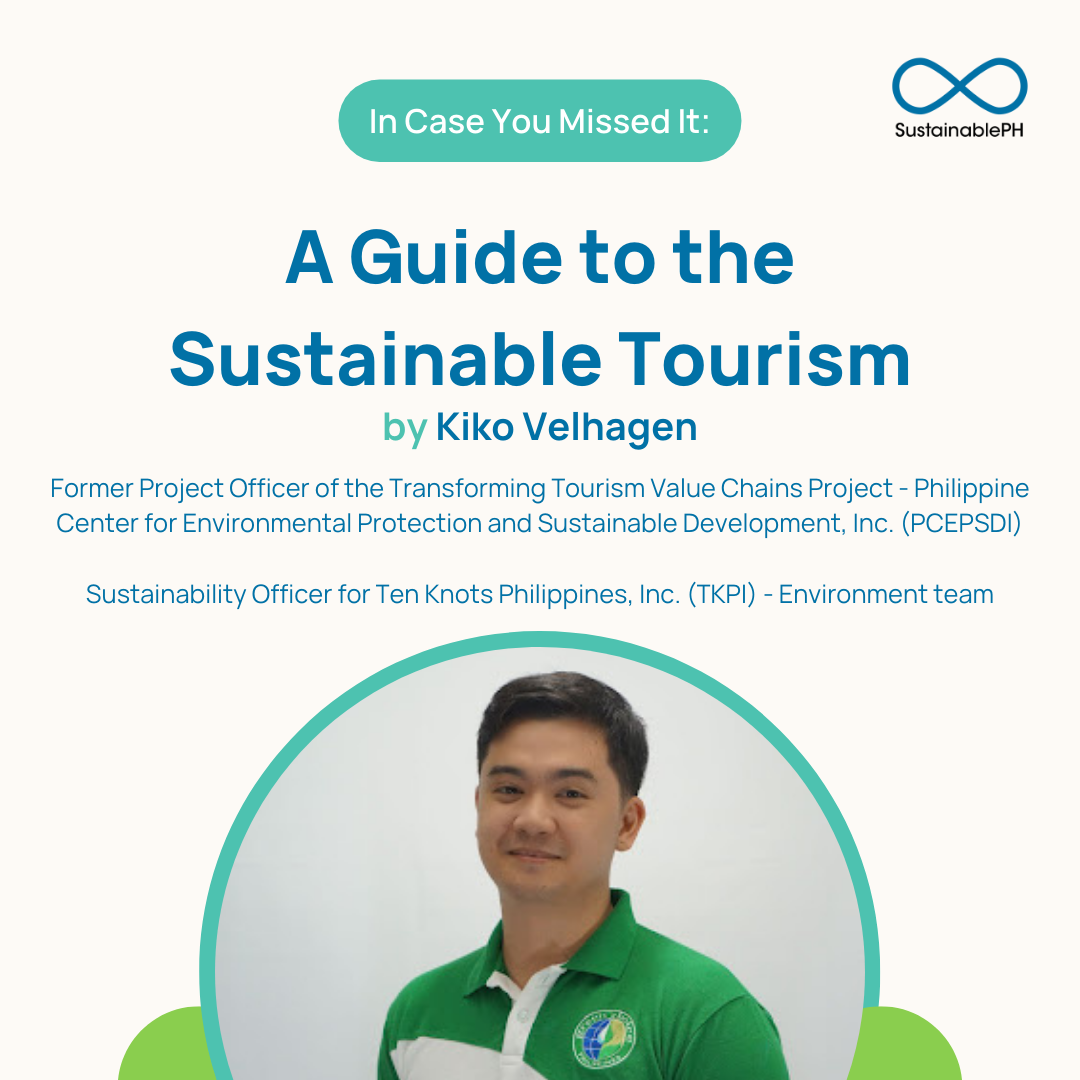
A Guide to the Sustainable Tourism
Have you missed traveling around the world? Did you know that there is already much movement within the tourism sector towards sustainability? For our third #AMA session, we will walk you through the tourism sector! Let us explore and wander the world of sustainable tourism and NGOs in the eyes of Kiko.
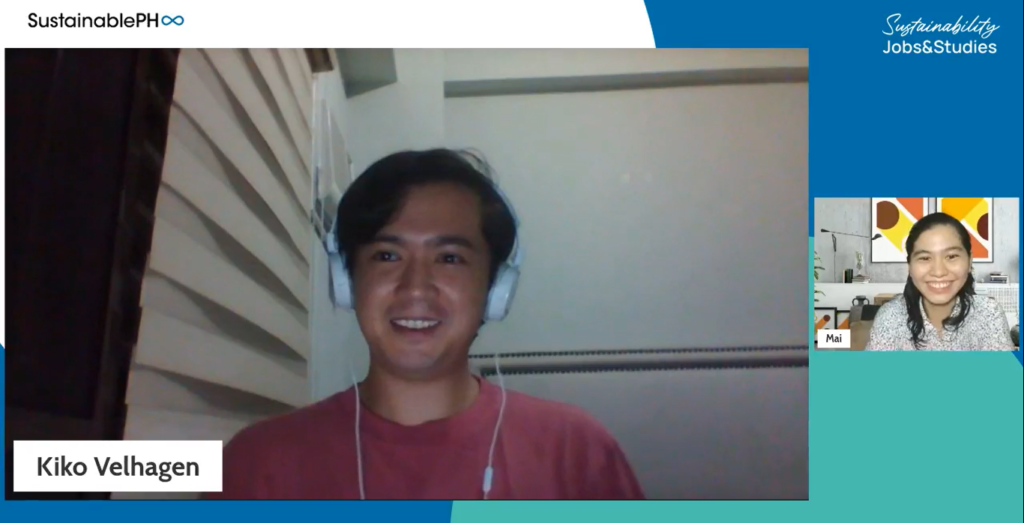
#AMA 03 with Kiko Velhagen
Meet Kiko Velhagen, a Bachelor of Science in Industrial Engineering graduate from De La Salle University in the year 2017. Previously, he was the Project Officer for the ongoing Transforming Tourism Value Chains project, under the Philippine Center for Environmental Protection and Sustainable Development, Inc. (PCEPSDI), he is now the Sustainability Officer for Ten Knots Philippines, Inc. (TKPI) as a part of the Environment team.
A Backtrack to the Transforming Tourism Project
Kiko shared the behind-the-scenes of the occurring sustainable tourism project. The Transforming Tourism Value Chains (TVC) project was conceptualized by the United Nations Environment Program (UNEP), the Department of Tourism, and PCEPSDI, which began in 2017. It aims to reduce greenhouse gas emissions and increase resource efficiency mainly in hotels and MICE (Meetings, Incentives, Conferences, and Exhibitions).
The first two years were crucial because it is the assessment phase wherein they study and establish the Philippine tourism value chain as the main blueprint to discuss the challenges and possible solutions, simultaneously campaigning for the implementation phase. This implementation phase, which is currently in its last year, consists of organizing capacity buildings, providing technical support on the tools the project has developed and implementing the recommended solutions. This project is funded by the Federal Ministry for the Environment, Nature Conservation, and Nuclear Safety of Germany through their International Climate Initiative.
What is it like when you engage with the clients?
Based on his experiences, the project has a step-by-step approach to the private sector. First, the team meets and presents to them. Then, introduce and let them familiarize themselves with the provided tools that they have developed solely for the project. They will also identify the gaps because as Kiko said not all the solutions can cater to a certain problem.
Once all of these are done, they can now provide a checklist of solutions and recommendations in reference to the roadmap for low carbon and resource efficient tourism in the Philippines along with its goals. Furthermore, they will dive deeper into a more comprehensive planning stage. And these are not only for a day. It can go a long way, depending on its effectiveness.
How did you become part of this project?
According to him, the turning point was his Clean Reproduction class during his last college year which enhanced their research skills. They focused on the environment which led him into knowing sustainability. His professor at that time, who was connected to PCEPSDI, recommended him to the organization for a position under the TVC project. Right after his graduation, he immediately attended workshops for this project.
If you will ask Kiko the things that made him prepare for this project, he will answer with a laugh, “I wasn’t prepared at all.” Despite that, his mentors, team, and peers helped him achieve the mindset that he now has in project management.
Online materials, training, and webinars also assisted him in the sustainable tourism space. Kiko took a short course on Designing and Developing Sustainable Tourism in 2018 at the Asian Institute of Management – Dr. Andrew L. Tan Center for Tourism. He is also a Climate Reality Leader, having been trained by the Climate Reality Project in 2020.
Tourism over Pandemic?
Because he’s currently working in the tourism industry which was severely affected by the pandemic, someone asked if there’s still a future for the tourism professionals. Kiko believed that tourism is not a dying industry. What proved to be a major challenge for the industry ended up becoming a glimmer of hope in the fact that tourism will always be relevant here in the Philippines. He advised that we must always think ahead, “Apply these [solutions] as early as now.” he ended. Though we must be practical, Kiko said that there’s still hope. Tourism will eventually get back to where it was and will prosper more.
What's the fulfilling part of your work?
“Being part of the conversation”. For Kiko, one of the fulfilling parts of his work was to gain and learn more about sustainability, in general. He can communicate with other NGOs, businesses, government representatives, LGUs, and even international organizations, with whom he never thought he could converse with. The fact that he can also contribute to developing solutions or activities for the benefit of tourism services, made Kiko’s heart full.
Yet, let’s all take note that he also faced challenges such as the need to align with stakeholders. He shared that sometimes more needs to be done to increase alignment between them and the project recipients and partners. That’s why communication and analytical skills are of great help to let them meet halfway.
Who are your role models in the Sustainability Space?
Aside from his workmates, peers, and bosses (special mention to Sir June and Ma’am Grace), his older sister who formerly worked for Haribon Foundation, and now the World Bank, guided him by giving informative lists of resources and podcasts.
Your Words of Encouragement to those interested in this field
For those aspiring people who are interested in sailing their way to the tourism sector, you will be qualified if you are willing to learn and have a background in environment, sustainability, and community engagement.
“Remain Curious. Have the drive to learn more,” Kiko said. For him, communication skills are essential because sustainability cannot be done alone. It is your bridge and your spark to continue thriving for the betterment.
Kiko also said that if you have that interest in yourself, don’t shy away from it. Don’t be afraid if your background or experiences are not fully aligned with sustainability, or if you’re not into those kinds of organizations, because the thing to remember here is to,
... always have that sustainability mindset. It’s okay if you don’t go to an NGO, [and] you go to corporate [instead]. Wherever you go, I believe that sustainability should be part of everyday work or career. And in a way, it can also affect your personal life. You’ll be able to see and appreciate the changes that you can make sustainability-wise, living a more sustainable life.” - Kiko
As of May 2022, Kiko is now a Sustainability Officer for Ten Knots Philippines, Inc. (TKPI) as part of the Environment team that heads the environmental and sustainable operations of Lio Tourism Estate and El Nido Resorts.
As we walk through, these golden nuggets will surely be our light on the exploration of the sustainable tourism industry. If you’re now ready, buckle up your interest with your mindset and get that career you’re aiming for!
Watch Kiko’s interview HERE!
Sustainability Jobs – Philippines is a group for sustainability professionals exploring for opportunities in ESG, sustainability, and sustainable development. Join the community and conversation for FREE! Be updated on sustainability jobs and learning opportunities at Sustainability Jobs – Philippines.
And if you’re a practitioner and/or professional looking to grow your skills, network, and career in sustainability, join the Society of Sustainability Practitioners (SSP) — the country’s first association of sustainability professionals nationwide. You may apply to be a member through SSP’s registration form. We’ll see you there!
Edited by: Kiko Velhagen & Andrea Go
Photo Header by: Crisyll Torres
About Post Author
Author
Crisyll Torres
Admin and Partnerships Head of SustainablePH
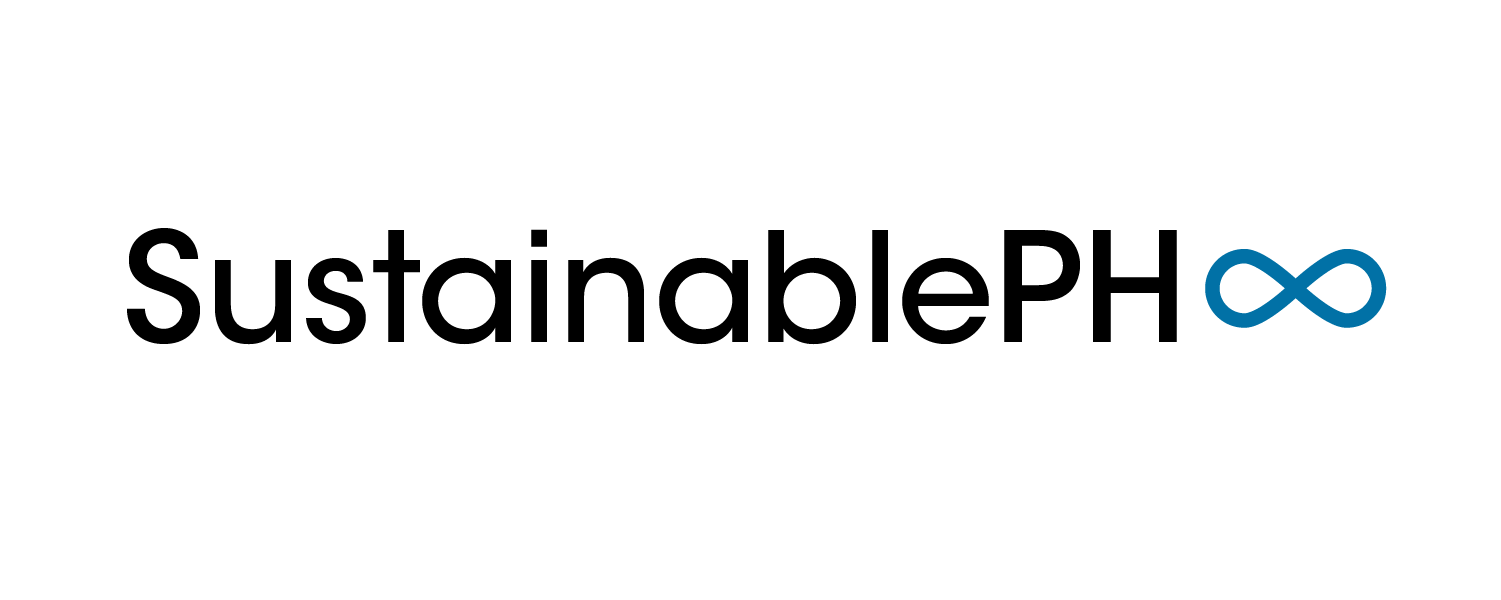
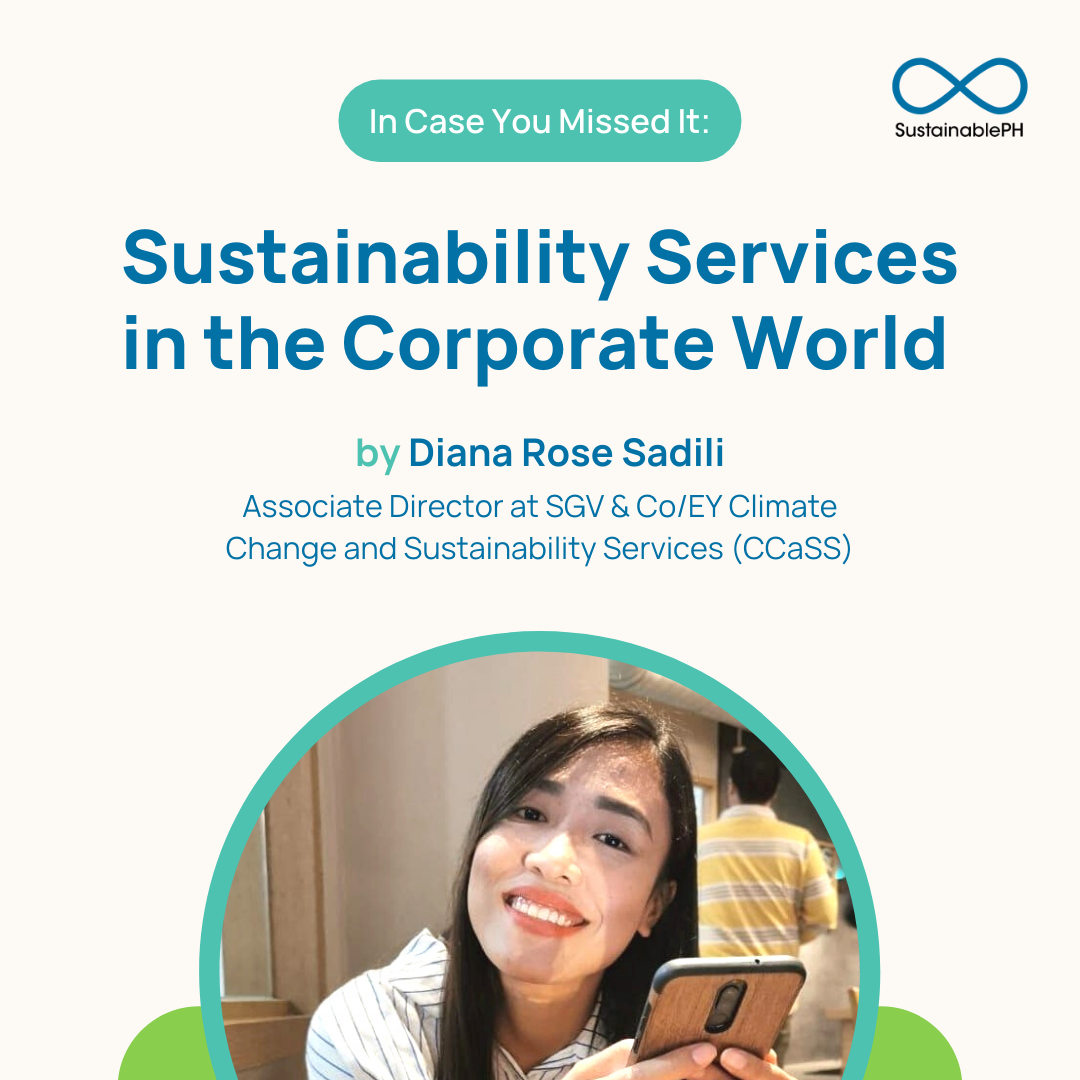
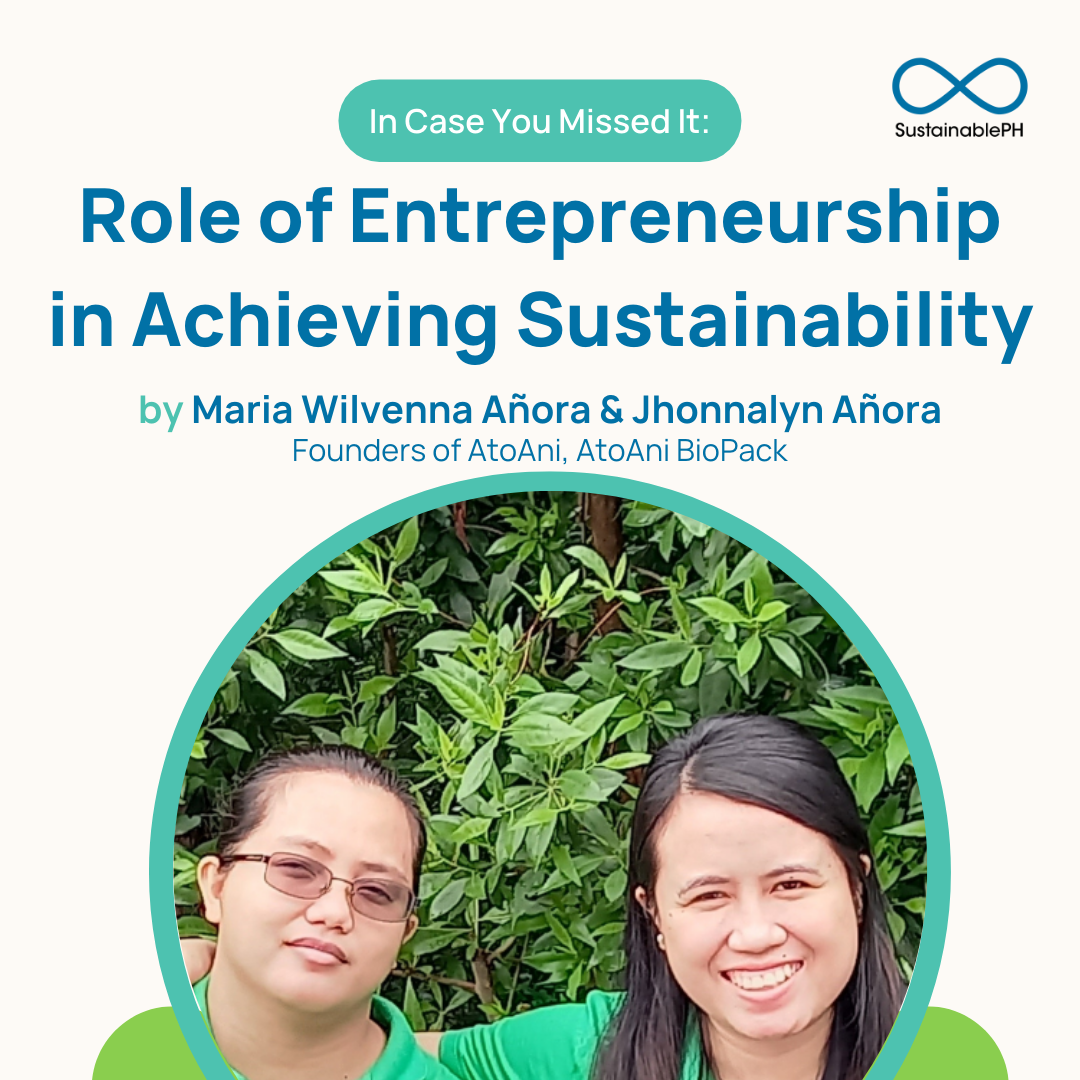

Leave a Reply